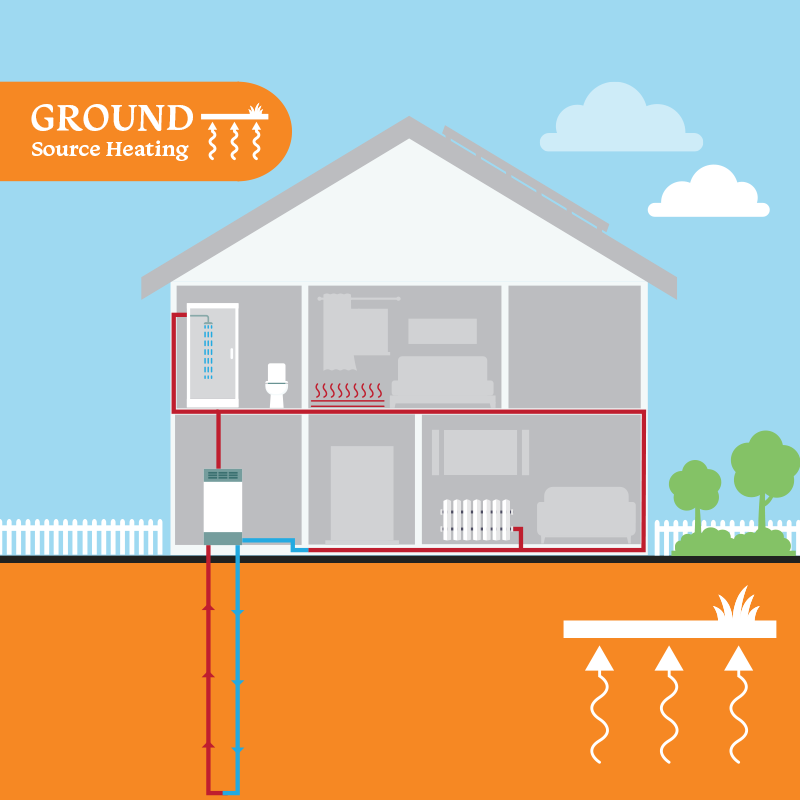Zero-Carbon Emission
Low Running Costs
Incredibly Efficient
Sustainable
Long Service Life

Low Maintenance
What is a Ground Source Heat Pump?
Ground Source Heat Pumps are generally more efficient than Air Source Heat Pumps but do come at a higher cost. Unsurprisingly, Ground Source Heat Pumps extract heat from the ground in a similar way to how Air Source systems extract from the air, although Ground Source Systems are the most efficient renewable energy solution available today.
Installation does require a lot of ground work to dig trenches to lay the pipe work, But once installed, this provides an unobtrusive and environmentally friendly heating solution.
Why choose Ground Source Heating?
Ground source heat pumps provide a clean and cost effective ways of heating homes and businesses, by using the renewable energy stored in the ground. Ground source heat pumps can be installed in most areas of the UK using a borehole system or a ground loop system.
The heat from the ground (or lake) is collected via a closed loop of heat collecting pipes (ground loops) to provide one of the most energy-efficient ways of providing heating and domestic hot water.

How does a Heat Pump Work ?
The only energy used by Ground Source Heat Pump systems is electricity to power the pumps. Typically, a Ground Source Heat Pump will deliver 3 or 4 times as much thermal energy (heat) as is used in electrical energy to drive the system.
As with Air Source Heat Pumps Ground Source Heating is a very efficient and cost effective alternative to LPG or Oil fired heating in rural areas.
We are surrounded by thermal energy, basically heat. Heat will naturally flow from a warm place to a colder place, we need to reverse this to provide heat energy in a home when it’s cold outside we need the heat to flow from a colder place to a warmer place. And this is how it’s done.
When the pressure of a gas increases, it will increase the temperature. When the pressure decreases, the temperature decreases. It’s this simple relationship between pressure and temperature that is the key to how a heat pump works.
The heat pump contains a gas which is known as a ‘refrigerant’ and a heat pump uses electricity to compress this refrigerant, increasing the pressure and therefore the temperature.
The refrigerant’s heat is transferred to the home through the heat exchanger, it cools down a little during the process. The refrigerant is then allowed to expand so that it cools even further. It’s now cold enough to absorb more heat from outside and the process begins again.
The heat delivered to the heat exchanger can then be used to heat your home, through a central heating system using radiators or underfloor heating.
